Is Poor Sleep a Symptom of Menopause or Something More
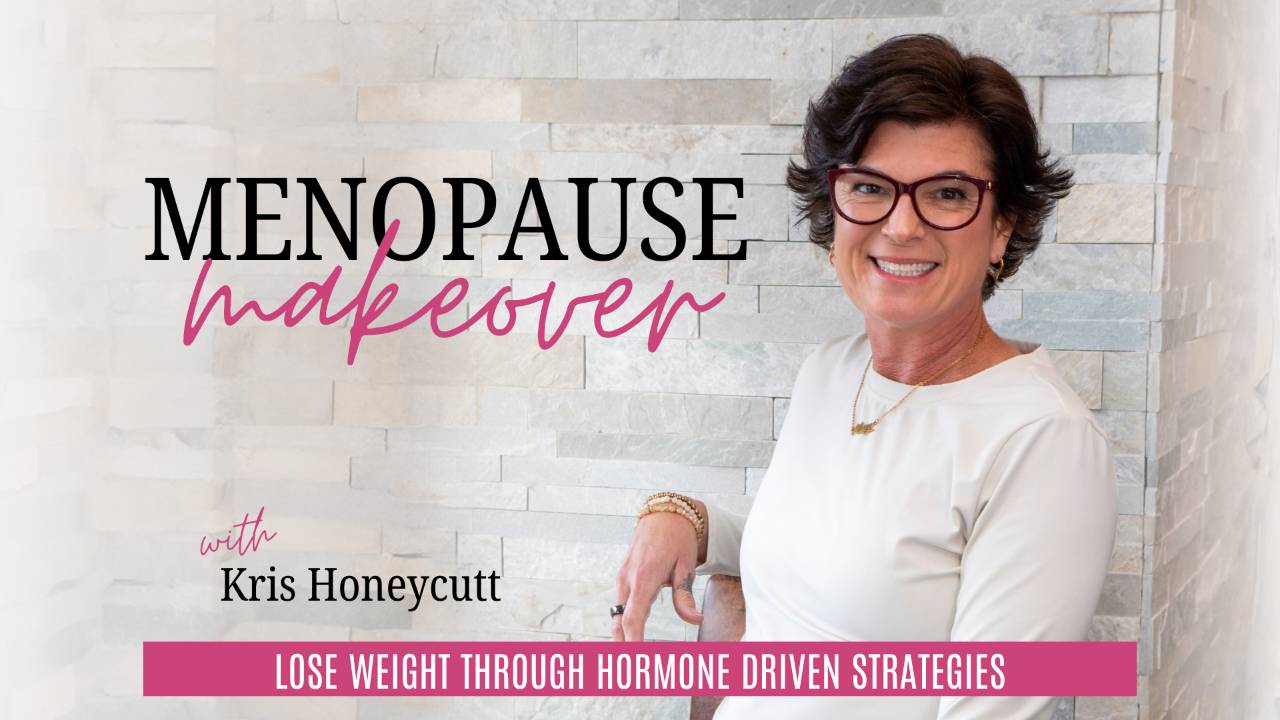
Apple Podcast - Spotify - YouTube
Is Poor Sleep a Symptom of Menopause or Something More?
Let’s talk about something no one warned us about—waking up exhausted even after a full night's sleep.
If you're a woman in your 40s or 50s doing your best to stick with Trim Healthy Mama, lift weights, balance your blood sugar, and take care of your health, but you still wake up bone tired, I want you to know this:
You’re not lazy. You’re not broken. You’re in hormone transition.
And today, we’re going to unpack why you feel so drained—and what you can do to start reclaiming your energy, one habit at a time.
Why Am I So Tired All the Time Even When I Sleep?
This might sound familiar:
- “I’m getting 7 or 8 hours, but I wake up tired.”
- “I keep waking up between 1 and 3am, and my mind is racing.”
- “I can’t fall asleep, or I fall asleep and then I’m wide awake at 2am.”
These aren’t just annoyances—they’re signals. Your body is working overtime to manage hormone changes, cortisol ...
5 Sneaky Reasons You're Not Losing Weight in Midlife
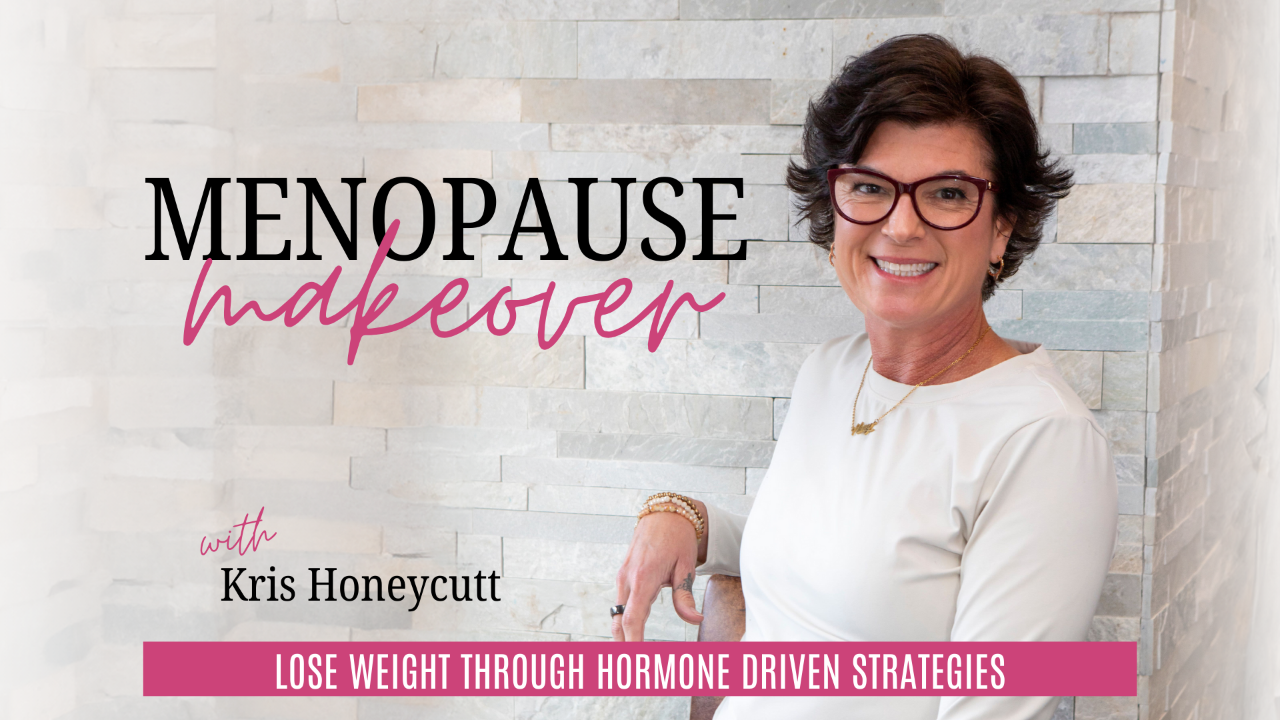
Apple Podcast - Spotify - YouTube
Welcome to The Menopause Makeover—where we talk Trim Healthy Wisdom, hormones, fitness, and real-life wins (and struggles) in midlife. Let's look at the five sneaky reasons your weight won’t budge—even when you're eating healthy, exercising, and doing “all the right things.”
If you’re a midlife mama who feels like your belly fat has a mind of its own, you're not crazy—and you're definitely not alone.
Let’s get into it.
Why Midlife Fat Loss is Different
You’re not broken—your body is just different now. In perimenopause and menopause, everything from your muscle mass to your metabolism is shifting. But here’s the real kicker:
It’s not your hormones causing fat gain.
Hormones are symptoms of deeper imbalances. When estrogen declines, cortisol rises, and insulin gets cranky, your body starts shifting fat to your belly and holding onto weight like it’s prepping for winter.
And what used to work… doesn’t.
Sneaky Sabotage #1: You’...
Wake Up Tired? How to Reclaim Your Sleep in Perimenopause
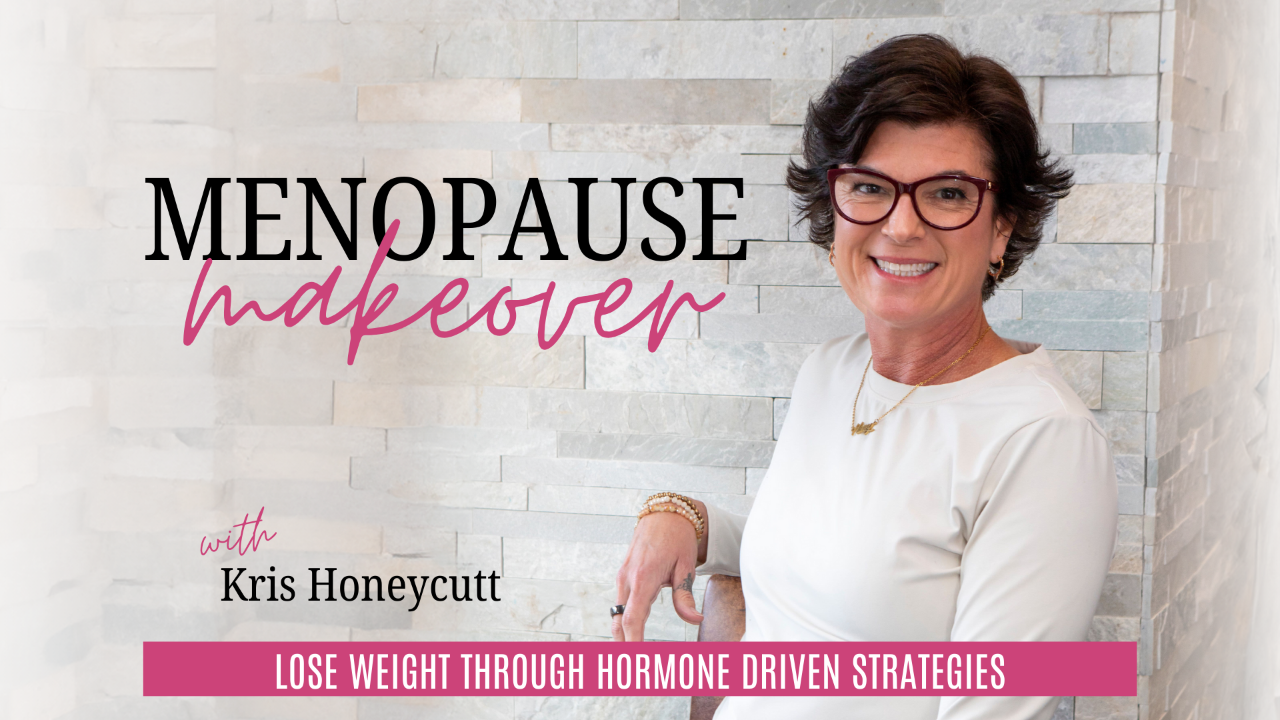
Apple Podcast - Spotify - YouTube
Why You’re Waking Up at 3AM in Perimenopause (and What to Do About It)
Raise your hand if your sleep used to be... well, normal-ish.
You’d go to bed, sleep through (more or less), and wake up ready-ish to face the day. But now? Somewhere in your 40s, sleep flipped the script. You wake up at 3am wide-eyed, your brain is running a full-blown mental PowerPoint presentation, and you're wondering: “Is this just how it’s going to be from now on?”
Friend, I see you. I am you.
This week on the podcast, I had the absolute joy of welcoming my friend and colleague Shonda Palmer, founder of Shonda Palmer Wellness. She’s a national board-certified health and wellness coach, a mindfulness teacher, and a total powerhouse when it comes to helping women in midlife finally get the rest they need. She’s coached thousands of women using CBT-I (Cognitive Behavioral Therapy for Insomnia) — and she joined me to unpack why sleep becomes so elusive in perimenopau...
Why Perimenopause Is The Best Time To Start Supporting Your Hormones

Apple Podcast - Spotify - YouTube
Welcome to the Pivot
Hey friend. If you’ve been wondering what’s going on with your energy, your weight, your sleep, or your emotions lately—and you’re somewhere in your late 30s, 40s, or even early 50s—let me whisper something to you:
You’re not crazy. You’re not broken. And you’re not alone.
What you’re feeling? It’s hormones. More specifically, it’s perimenopause—the body’s beautiful, frustrating, confusing transition into menopause. Most of us had no clue this was coming. No one pulled us aside and said, “Hey, heads up—your jeans might start getting tight, your sleep may tank, and that quick weight loss trick you used in your 20s? Yeah, it stops working.”
But here’s the good news: this season is not a problem. It’s an invitation.
And what you do now—how you choose to care for your changing body—can either set you up to thrive in your 50s and beyond or make it a whole lot harder to bounce back later.
The Real Signs of Hormonal Imb...
Menopause Motivation Hacks: How To Take Action Even When You're Tired
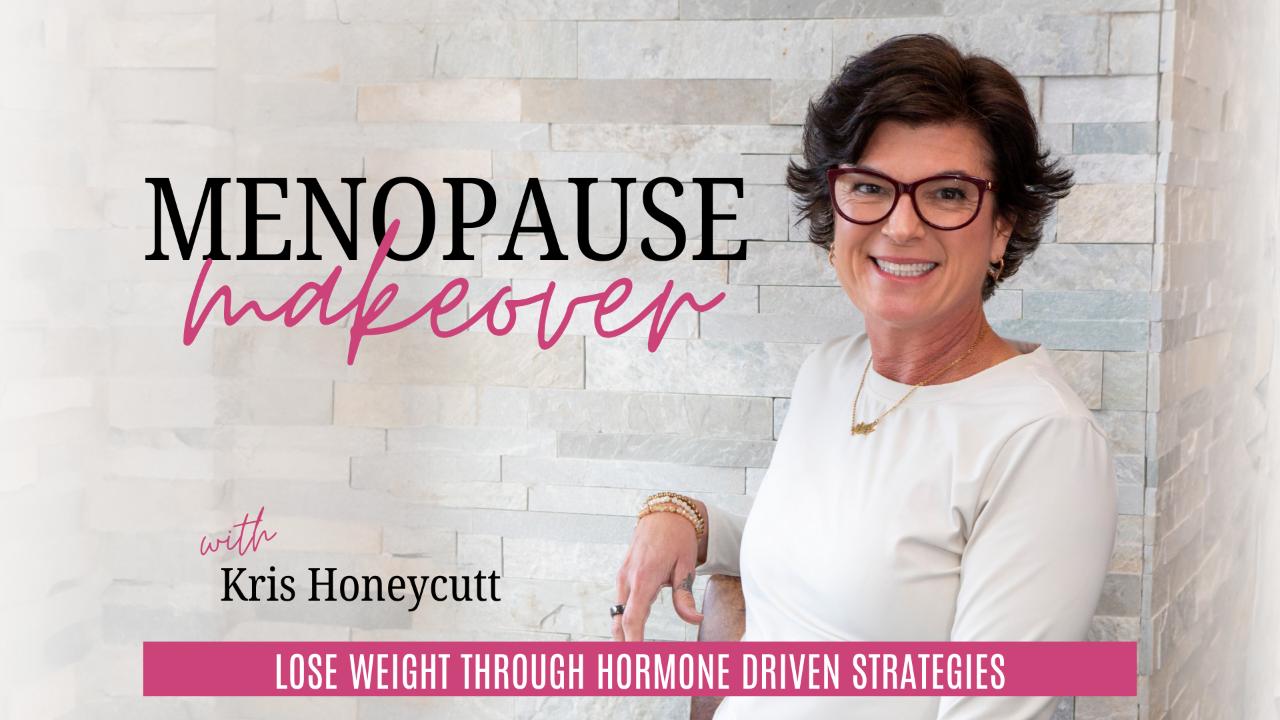
Apple Podcast - Spotify - YouTube
When Your Get-Up-and-Go... Got Up and Left
Let me ask you something, friend: have you ever looked at your walking shoes, your protein shake, or even just your meal prep plan and thought, "I just don’t have it in me"?
Yeah. Me too.
And I’m not just talking about being tired—I’m talking about that whole-body, brain-fogged, soul-deep lack of drive that shows up like an unwelcome guest in perimenopause and menopause. It’s not that you don’t care. It’s that your hormones have started rewriting the rules without telling you.
Even as a certified personal trainer, Trim Healthy Mama coach, and menopause fitness specialist, I wasn’t immune. My motivation fell off a cliff. And I had to learn how to keep showing up anyway. Not perfectly. But consistently. And most of all—with grace.
So today, I want to talk to you about why this happens, what’s really going on, and how to work with your body—not against it—in this new season.
Hormones, Motivation, ...
Menopause Liver Detox: What You Need to Know
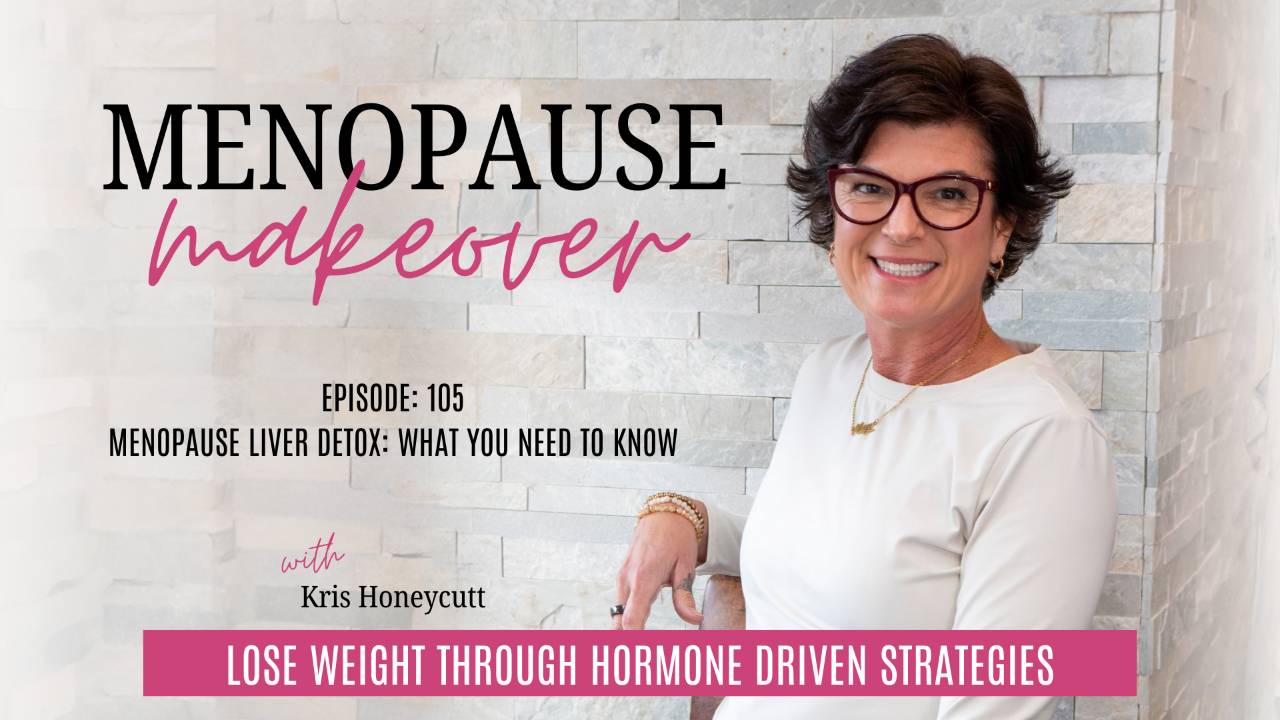
Apple Podcast - Spotify
Why Your Liver Needs Extra Love in Midlife
If you’re in midlife and feeling like your body is just not cooperating with your weight loss goals, your energy is tanked, your digestion is off, and your skin just isn’t glowing like it used to… I want you to know: it’s not all in your head.
Your liver might just be quietly crying out for some attention. Yep, that hard-working organ tucked under your ribs is doing a ton behind the scenes — especially during perimenopause and menopause — and it's high time we showed it some love.
This post is inspired by Episode 105 of the Menopause Makeover: Menopause Liver Detox: What You Need to Know. If you haven’t listened yet, definitely pop in your earbuds after this read.
But for now, let’s dig into what your liver actually does, why it matters so much for hormone balance and fat loss, and how you can begin to gently support it — starting today.
What Your Liver Does (and Why It’s So Important in Menopause)
Your...
How to Stay On Plan and Overcome Hormone Imbalance in Midlife

Apple Podcast - Spotify
This post is sponsored by Kiaora
Curious if BHRT could help you? Check out Kiaora for a customized approach.
From Hormone Imbalance to Breakthrough: Coach KJ's Inspiring Journey with Trim Healthy Mama
If you’re a midlife woman struggling with weight loss, brain fog, and those rollercoaster hormones, grab your favorite sipper and settle in because you are not alone. Today’s post is a special one, and I can't wait for you to hear it.
I had the pleasure of chatting with my friend and fellow Trim Healthy Mama coach, KJ York. Her story is powerful, real, and full of hope. KJ’s journey from battling food addiction and hormone imbalance to finding freedom and purpose is one you need to hear. She opens up about her struggles, her faith, and the practical strategies that helped her overcome the roadblocks that so many of us face in midlife.
So if you’ve been feeling stuck, frustrated, or just plain tired of trying to get it right—this post is for you. L...
Why You Can’t Sleep and How It’s Sabotaging Your Hormones After 40

MUSIC PROVIDED BY - https://www.purple-planet.com/
This post contains affiliate links to products. I may receive a commission for purchases made through these links.
Apple Podcast - Spotify
As a woman in midlife, you’ve probably noticed that sleep doesn’t come as easily as it used to, and stress feels like it’s running the show. These changes aren’t just frustrating—they’re directly tied to what’s happening with your hormones. Sleep and stress are closely linked to hormone balance, and when they’re out of sync, it creates a domino effect that can derail your health, energy, and weight loss goals.
Let's break down why sleep and stress are such powerful players in your midlife journey and how they impact key hormones like cortisol, insulin, estrogen, and progesterone. You’ll also find actionable strategies to reclaim your rest, reduce stress, and support your body during this new season.
How Sleep Loss and Stress Wreak Havoc on Your Hormones
When you’re stressed or ...
Midlife Tips to Get Back On Track With Weight Loss

MUSIC PROVIDED BY - https://www.purple-planet.com/
Apple Podcast - Spotify
Midlife Tips to Get Back On Track With Weight Loss
Hello, friends! If you’ve ever struggled to stay consistent with your weight loss goals in midlife, you’re not alone. Life happens—whether it’s stress, changing hormones, or the demands of family and career—and suddenly, those healthy habits fall by the wayside. But here’s the good news: getting back on track is not only possible but completely within your reach. In this post, I’m sharing practical, actionable midlife tips for getting back on track with weight loss that can help you feel empowered and focused on your health journey.
Why We Fall Off Track
Life Happens
In midlife, juggling responsibilities like work, family, and your own well-being can feel overwhelming. Often, weight loss and fitness goals are the first things to get pushed aside. Before you know it, you're off plan and struggling to get back into a groove.
Emotional and ...
7 Benefits of Using a Vibration Plate During Menopause

MUSIC PROVIDED BY - https://www.purple-planet.com/
Apple Podcast - Spotify
The Whole Body Vibration Plate – A Game-Changer for Women in Midlife
Struggling with stubborn weight, achy joints, or trying to find the energy to stay on track with your health goals during menopause? If that sounds like you, let me introduce you to one of my absolute favorite tools: the whole-body vibration plate.
Now, I’ll be the first to admit—I don’t jump on fitness fads. But after diving into the science and trying it myself, I’m here to tell you this tool is a game-changer for women in midlife. Whether you’re navigating hormone changes, recovering from an injury, or looking for a way to boost your results, the vibration plate might just be your new best friend.
Let’s talk about why this tool is so valuable and how it can fit into your midlife health journey.
What Is a Whole Body Vibration Plate?
At its core, a whole-body vibration plate is a platform that sends gentle vibrations thr...


